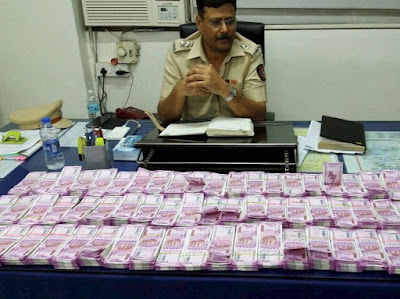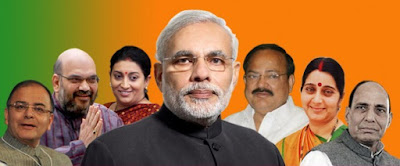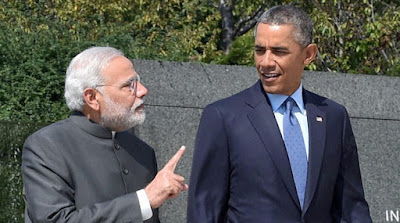"Corruption is Authority Plus Monopoly Minus Transparency"
According to Indian Institute of Public Finance and Policy (IIPFP), evasion of personal income tax (48%), under-reporting of production (28%) and under-registration of immovable property (18%) account for 94% of illegal income generated domestically and India's black money is estimated by some experts to be around 20% of India's GDP in 2016 ($ 2.3 trillion) which works out to a colossal Rs 30 lakh crore ($ 460 billion). Further, according to some estimates major chunk of black money (75%) has been invested in undisclosed foreign holdings, real estate, precious metals like gold, diamond, undervalued stocks, benami financial investments and barely 25% is stashed in cash.
PM's audacious move, in the initial days, seemed to have choked the supply of black money into hawala operations, real estate transactions, financing of cross-border terrorists, insurgents in North East & Maoists, stone pelting in J&K and election funding besides abolishing counterfeit currency. However, those sitting on huge piles of unaccounted or ill-gotten wealth soon started getting restless and sprung into action of converting their black money into legal tender. Raids by agencies like Income Tax, CBI, ED, DRI and others have unearthed massive laundering of unaccounted black money and confiscated nearly Rs 4,000 crores in the form of new currency notes, gold, diamonds etc from these culprits. Media must be complimented for their invaluable sting operations and investigative reporting on the underhand exploits of the unscrupulous practitioners of JUGAAD (ingenuity) to subvert and undo demonetization with the connivance of corrupt bankers, bureaucrats and politicians. The services of poor and jobless were suitably utilized for depositing money in Jan Dhan accounts, for standing in long queues for exchange of invalid old notes in small lots, proving the maxim that in critical moments even the very powerful and rich have the need of weakest and poor.
Govt's decision came in for scathing criticism by many opposition parties and they didn't let Parliament function during most of its winter session. It is an open secret that some politicians have personal reasons to raise their banners against this bold step as they stand to lose their assiduously hoarded unaccounted black money. However, this historic step was praised by some opposition Chief Ministers like Nitish Kumar, Naveen Patnaik, Chandrababu Naidu to name a few creating dissension. Besides, PM Modi chose to take his fight against corruption in the people's court through his aggressive speeches and 'Man ki Baat'. He appealed to their collective goodness and honesty promising more attacks on the citadel of corruption in coming months. His political instinct in reaching out to common man seems to have worked so far as no riots or serious law & order crisis happened in most of the country as imagined by some politicians. The corrupt may wail, critic may whimper, cynic may whine but protagonist of a better, clean and developed India are not unhappy. This bold and ambitious step is likely to boost Govt revenue, encourage bank lending, bring down interest rates and promote cashless shopping. In a big and diversified country like India it may be impossible to have a cashless economy but with focus on digitization some proportion of cash can be decreased gradually. Less cash plausible, cashless economy difficult.
PM Modi can take heart from the ground reality that an overwhelming majority of Indians have backed his resolve to fight corruption in spite of tremendous inconvenience suffered by them in the last 50 days. Their love and respect for him will increase further if his Govt takes speedy action to nab big sharks and whales flourishing for decades in the murky waters of corruption and black money. The man on the street will have a vicarious pleasure if a special fast track court is set up soon to prosecute all demonetisation-related criminals - be they bankers, bureaucrats, politicians or businessmen - within a stipulated time-limit of 90 days. Their names should be in public domain to deter the potential crooks. Other high-profile pending corruption cases like 2G Spectrum, Coalgate. Railgate, CWG, NHRM etc need to be expedited and guilty punished. PM may also consider mandatory digitisation of land and property records linked to Aadhaar & PAN numbers, simplification of tax structure and other reforms suggested by various experts and committees to curb regeneration of black money. The pragmatic advice of great thinker Chanakya (370 - 283 BC) in the matter of tax collection is still relevant "A taxman should be like a honey bee which sucks just the right amount of honey from the flower so that both can survive." Also, the quantum of punishment for big ticket financial fraud cases should be enhanced to at least 25 years in prison without parole. It is pertinent to recall that in June, 2009 a US court sentenced fraudster and operator of a Ponzi scheme, Bernard Madoff to 150 years in prison and penalty of $170 billion for his ponzi scheme. Can we expect such exemplary punishment for similar crimes committed in Saradha, Pearl and Rose valley ponzi schemes in India? In the last 70 years the experience of honest tax-payers has been that strong and powerful criminals manage to escape the clutches of law. This perception should change and Modi Govt can do it. But the biggest blow to black money will come if Govt brings the funding of political parties under the purview of RTI & Income Tax authorities. Transparency in polity will have a domino effect on improving the quality of bureaucracy and judiciary.
It is not clear as to how long cash crunch will last and so far it had been a 'Winter of discomfort' for the silent majority. But if Govt can restore even 70% of normalcy in the availability of reasonable cash through banks/ATMs, by mid-Jan, 2017 the honest and hardworking populace of the land may be willing to forget their misery and soldier on with same fortitude as they have done since Nov 8, 2016. hoping for better future echoing Shelly's uplifting words "If winter comes can spring be far behind". After 50 gruelling days it's advantage Modi.










